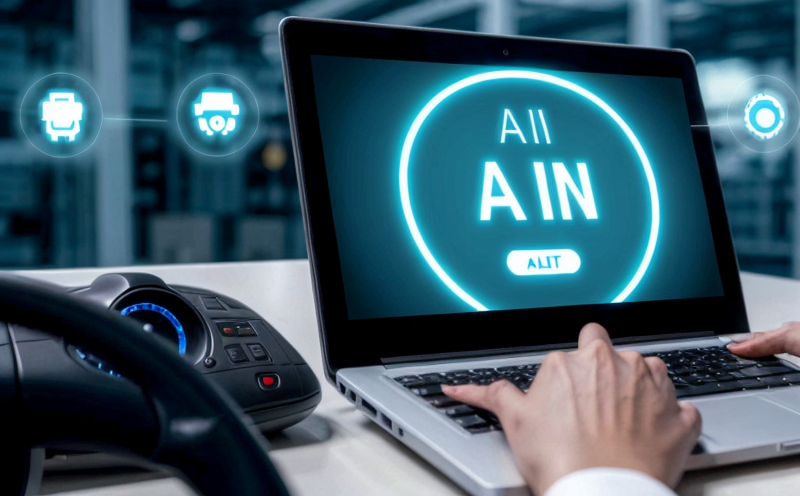
-
Transportation and Logistics Certification-
Certification in Technology and Innovation for Logistics-
Artificial Intelligence (AI) in Logistics Certification
We provide comprehensive solutions designed to help our clients mitigate risks, enhance performance, and excel in key areas such as quality, health & safety, environmental sustainability, and social responsibility.
Discover
For many years, our organization has been operating successfully, boasting modern laboratories that meet international standards. These laboratories are equipped with the latest technology devices and equipment, and we have built a strong team of experienced and trained personnel to operate them.
DiscoverWelcome to Eurolab, your partner in pioneering solutions that encompass every facet of life. We are committed to delivering comprehensive Assurance, Testing, Inspection, and Certification services, empowering our global clientele with the ultimate confidence in their products and processes.
Discover
-
Transportation and Logistics Certification-
Certification in Technology and Innovation for Logistics-
Artificial Intelligence (AI) in Logistics CertificationArtificial Intelligence (AI) in Logistics Certification: Revolutionizing Supply Chain Management
The logistics industry has undergone significant transformations in recent years, driven by technological advancements and changing consumer expectations. One of the most promising innovations in this space is Artificial Intelligence (AI), which is increasingly being integrated into logistics operations to enhance efficiency, accuracy, and customer experience. In this article, we will explore the concept of AI in logistics certification, its benefits, challenges, and applications.
What is AI in Logistics Certification?
AI in logistics certification refers to the integration of artificial intelligence technologies, such as machine learning, natural language processing, and computer vision, into logistics operations to improve their efficiency, accuracy, and scalability. This involves automating tasks, analyzing data, and making predictions to optimize supply chain management. The goal is to create a more agile, adaptable, and responsive logistics ecosystem that can meet the demands of e-commerce growth, changing consumer behavior, and increasing complexity in global trade.
Benefits of AI in Logistics Certification
The benefits of AI in logistics certification are numerous and can be categorized into several areas:
Predictive Maintenance: AI-powered predictive maintenance enables logistics companies to forecast equipment failures, reducing downtime and improving overall efficiency. This is achieved through machine learning algorithms that analyze sensor data from equipment, weather conditions, and other factors.
Automated Inventory Management: AI-driven inventory management systems can optimize stock levels, reduce waste, and improve fill rates by analyzing sales trends, seasonality, and supplier lead times.
Applications of AI in Logistics Certification
AI is being applied in various logistics applications, including:

Electrical and Electromagnetic Testing
Electrical and Electromagnetic Testing: A Comprehensive Guide Introduction Electrical and electrom...

Railway Industry Compliance
Railway Industry Compliance: Ensuring Safety and Efficiency The railway industry is a critical comp...

Cosmetic Product Testing
The Complex World of Cosmetic Product Testing The cosmetics industry is a multi-billion-dollar ma...

IT and Data Center Certification
IT and Data Center Certification: Understanding the Importance and Benefits The field of Informatio...

Transportation and Logistics Certification
Transportation and Logistics Certification: A Comprehensive Guide The transportation and logistics ...

Product and Retail Standards
Product and Retail Standards: Ensuring Quality and Safety for Consumers In todays competitive marke...

Environmental Simulation Testing
Environmental Simulation Testing: A Comprehensive Guide In todays world, where technology is rapidl...

Industrial Equipment Certification
Industrial equipment certification is a critical process that ensures industrial equipment meets spe...

Aviation and Aerospace Testing
Aviation and Aerospace Testing: Ensuring Safety and Efficiency The aviation and aerospace industr...

Healthcare and Medical Devices
The Evolution of Healthcare and Medical Devices: Trends, Innovations, and Challenges The healthcare...

Trade and Government Regulations
Trade and government regulations play a vital role in shaping the global economy. These regulations ...

Pressure Vessels and Installations Testing
Pressure Vessels and Installations Testing Pressure vessels are a critical component of various ind...

Consumer Product Safety
Consumer Product Safety: Protecting Consumers from Harmful Products As a consumer, you have the rig...

Energy and Sustainability Standards
In today’s rapidly evolving world, businesses face increasing pressure to meet global energy a...

Hospitality and Tourism Certification
Hospitality and Tourism Certification: Unlocking Opportunities in the Industry The hospitality and ...

Food Safety and Testing
Food Safety and Testing: Ensuring the Quality of Our Food As consumers, we expect our food to be sa...

Agricultural Equipment Certification
Agricultural equipment certification is a process that ensures agricultural machinery meets specific...

Automotive Compliance and Certification
Automotive Compliance and Certification: Ensuring Safety and Efficiency The automotive industry is ...

Construction and Engineering Compliance
Construction and Engineering Compliance: Ensuring Safety, Quality, and Regulatory Adherence In the ...

NEBS and Telecommunication Standards
Network Equipment Building System (NEBS) and Telecommunication Standards The Network Equipment Bu...

Military Equipment Standards
Military Equipment Standards: Ensuring Effectiveness and Safety The use of military equipment is a ...

Electromechanical Safety Certification
Electromechanical Safety Certification: Ensuring Compliance and Protecting Lives In todays intercon...

Environmental Impact Assessment
Environmental Impact Assessment: A Comprehensive Guide Environmental Impact Assessment (EIA) is a c...

Pharmaceutical Compliance
Pharmaceutical compliance refers to the adherence of pharmaceutical companies and organizations to l...

Chemical Safety and Certification
Chemical safety and certification are critical in ensuring the safe management of products and proce...

Renewable Energy Testing and Standards
Renewable Energy Testing and Standards: Ensuring a Sustainable Future The world is rapidly transiti...

MDR Testing and Compliance
MDR Testing and Compliance: A Comprehensive Guide The Medical Device Regulation (MDR) is a comprehe...

Fire Safety and Prevention Standards
Fire Safety and Prevention Standards: Protecting Lives and Property Fire safety and prevention stan...

Battery Testing and Safety
Battery Testing and Safety: A Comprehensive Guide As technology continues to advance, battery-power...

Lighting and Optical Device Testing
Lighting and Optical Device Testing: Ensuring Performance and Safety Lighting and optical devices a...